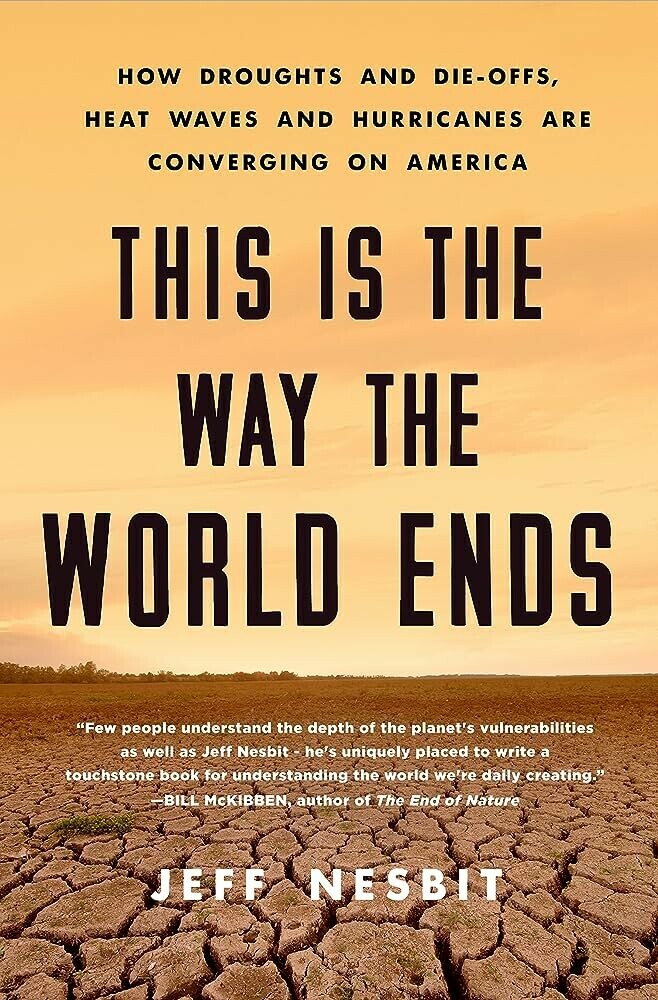News & Articles
Browse all content by date.

During our vigil at the Rose Garden on Saturday, July 22, to recognize Climate Emergency Day, and throughout the previous week's climate awareness campaign in Duluth, there were a number of conversations about the climate reality that has already arrived while many of us expressed serious concerns about what our city may face in the coming years.
On the morning of the 22nd, the latest climate news included reports on July being the Earth's hottest month on record, rampant heatwaves threatening food security of the entire planet, Italy endured its hottest and driest year on record in 2022, and Phoenix became the first major city in American history to average more than 100 degrees Fahrenheit for an entire month.
In his book This Is The Way The World Ends, which was published in 2018, Jeff Nesbit wrote, "In the next 10 to 15 years, life as we know it will start to change irreversibly. With CO2 levels rising dramatically, threatening human existence, climate change is no longer just an issue. It's a critical reality that impacts every single inhabitant on this home called Earth. With that said, how can we effect lasting change with such an overwhelming crisis?"
It's only been five years since Nesbit asked that question. And during our gatherings at the Rose Garden, Karpeles Museum, Canal Park, City Hall, and Duluth's Best Bread, we were asking the same question with regards to our city's climate future. How does our city effect lasting change with a climate emergency that appears to become more challenging and disruptive each year?
Recently, a group of us around town began talking about creating a new vision for Duluth's future. Reaching out to our friends, neighbors and family, and asking them what they wanted Duluth to look like in this climate-change world. And with 2028 being 10 years since the publication of Nesbit's book, and only five years from now, we felt a sense of agency and urgency to not only imagine our new city but to also explore how we can create and build a more resilient and environmentally just Duluth.
We've decided to organize a campaign to solicit ideas from citizens around the city on what they wanted to see. Duluth '28 is about bringing all of these ideas together to create a vision for our city that we can begin actualizing over the next five years. To engage, educate and enlist each other to undertake different actions to help our vision come alive.
James Bridle, in his book Ways Of Being: Animals, Plants, Machines - The Search for a Planetary Intelligence, talked about how we must come together if we hope to survive and thrive. In fact, Bridle argued that we must change ourselves, develop new ways of thinking and seek new ways of seeing the world. And Bridle stressed the importance of having a realistic picture of what we're facing so that we undertake appropriate and pragmatic approaches to engaging this climate emergency.
"Climate change is no longer something we can reverse, but something we have to adapt to, cope with and mitigate as much as possible. Existential dread is not a helpful response," stated Bridle. We need to come together to not only visualize everyone's hopes for our collective climate future but to renew and re energize our commitments to pursue and embrace a healthier and more sustainable city.
Just like a military campaign that deploys troops to defend and fight for their homeland, we need to undertake a climate campaign that deploys all of us to defend and fight for our collective home here in Duluth: for what we love and cherish - including our children, Lake Superior, the trees and forests, birds and butterflies, fresh air and fresh water, our elders, and everyone's public health.
How can we empower ourselves and each other to not only visualize what we want to see but to make choices and take actions for our vision to come alive? If we want to see more birds, butterflies and bees, then we need to rewild large sections of our private lawns and public spaces. If we want to reduce CO2 emissions, then we need to walk, bike and use public transportation. If we want to start adapting to heatwaves in our downtown district, then we need to plant more trees, build more gardens and reduce the number of cars.
Our group would like to hear from you. If you have a vision or ideas for Duluth, email us at webergeb@gmail.com or risson1954@gmail.com.
| Tweet |


